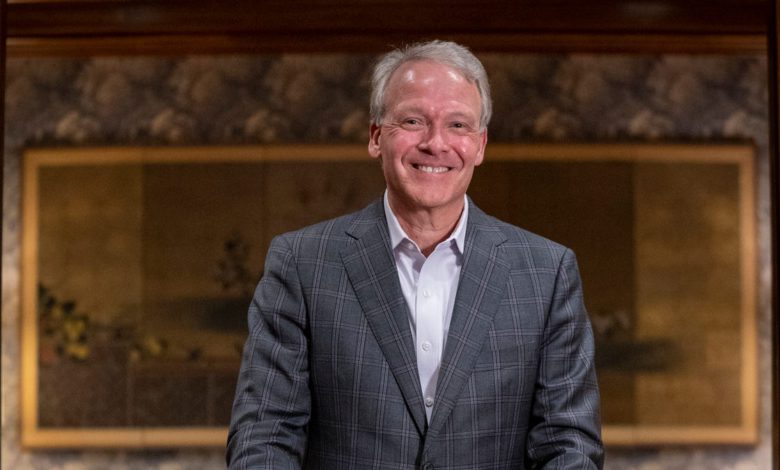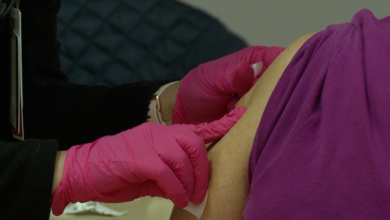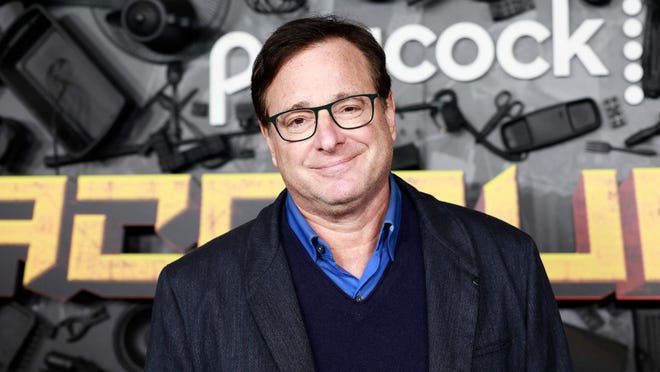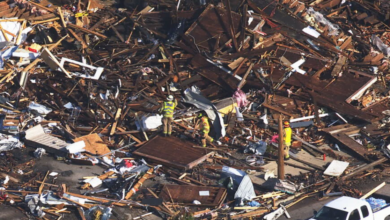
“So, if I as a health care professional choose not to get vaccinated with what, in my opinion, is a completely safe vaccine, I think that’s selfish,” he said. “And I think it’s unethical.”
After months of warnings, Houston Methodist suspended 178 employees without pay on June 7 for making that choice. Monday is their deadline to get vaccinated or be fired.
Protests, a petition and the lawsuit followed. In court documents, plaintiffs call the shots experimental and compare the mandate to forced medical experiments by Nazis during the Holocaust. When Hughes dismissed the lawsuit on Saturday, he singled out the Nazi comparison as “reprehensible.”

In recent days, other elite hospitals have followed suit. Johns Hopkins, New York Presbyterian, the University of Pennsylvania and most hospitals in the Washington, D.C. area have said they will require employees to get the shots.
While several states, including Texas, have considered outlawing vaccine mandates, so far only Montana and Arkansas have enacted such laws.
Many universities are requiring the vaccine for students and in some cases employees but otherwise generally mandates – at least those made public – remain rare so far.
The U.S. Census Bureau reports that only 4.4% of employers are requiring vaccines.
One lingering concern for employers has been that the three vaccines available in the U.S. all were authorized for emergency use. None have received full FDA approval, although both Pfizer and Moderna are seeking it.
On social media, anti-vaxxers have used Centers for Disease Control and Prevention data to insinuate that people are dying from the vaccine. But the data from the agency’s Vaccine Adverse Event Reporting System reports any death after a vaccine, without establishing any causal link, and the CDC says the vaccines are safe and effective.
The most serious side effect the CDC has established involved a few cases of blood clots in the brain combined with a low platelet count. Of the 11.2 million doses given of the Johnson & Johnson vaccine, there have been 35 confirmed cases of this rare condition.
A handful of lawsuits argue that any drug authorized for emergency use by law must give people the option of accepting or refusing the product. In his ruling, Hughes said that law does not apply to private employers. He also rejected the notion that people getting the vaccine are part of an experimental trial.
Hughes, a Ronald Reagan appointee, has a reputation for being a controversial judge. He has had cases reassigned by the Fifth Circuit Court of Appeals for his inappropriate statements, including in two recent gender discrimination lawsuits brought against Sam Houston State University and the University of Houston.
In the online petition related to Houston Methodist, commenters suggest this history could lead the ruling to be overturned. However, the Court of Appeals affirms Hughes’ rulings 72% of the time, according to Reuters.
Hughes’ ruling also aligns with the opinions of many legal experts and two federal agencies – the U.S. Equal Employment Opportunity Commission and the Occupational Safety and Health Administration – that employers can require workers to get vaccinated.
The resisting workers have already filed notice with the court that they will appeal.
“This is just one battle in a larger war to protect the rights of employees to be free from being forced to participate in a vaccine trial as a condition for employment,” said Jared Woodfill, the workers’ lawyer. “Employment should not be conditioned upon whether you will agree to serve as a human guinea pig.”

Houston Methodist became a flashpoint in the vaccine debate largely thanks to one nurse in a suburban unit, Jennifer Bridges.
Bridges started her career working in restaurants and as a bartender before deciding to become a nurse. “Anybody who knows me knows I’m the kind of person that always helps everybody,” she explains. She briefly dabbled in home health care, then spent the last 6½ years at Houston Methodist Baytown, half an hour to the east of headquarters.
“I loved working at Methodist the whole time I was there prior to this whole vaccine situation,” said Bridges, who lives in a quiet suburb with her three dogs. “They treated us very well.”
Like hundreds of thousands of medical professionals, Bridges came down with COVID-19 last year. Her symptoms were mild, adding to her resolve that getting the vaccine is not worth the risk.

When she realized this spring that a mandate was planned, she came into work on her day off, wearing her uniform to avoid suspicion. She brought with her a petition for staff to sign that urged the administration to reconsider. Her hospital’s chief called her in and lectured her for 90 minutes, she said, so she switched to the online petition, now just under 10,000 signatures.
Bridges also began searching for law firms. One in New York advised her to hire a local attorney. Based on a recommendation from a friend, she met with a local lawyer.
She paid the initial retainer herself then launched the GoFundMe account with a goal of $500,000. Headed toward halfway there, she says she also has received some private donations and plans to create a website to sell t-shirts. The anti-vax groups Texans for Vaccine Choice and Freedom Matters Action Group have provided logistical support, she said, helping with protests and outreach.
The resulting lawsuit repeats some of the misleading information that has spread like wildfire on social media, including claims that thousands have died from the vaccine. The judge took a swipe at the lawsuit’s wording, saying it was written in a “press-release style.”

Some of those who side with Bridges say they were prepared to lose their jobs for the cause. Of four nurses interviewed by USA TODAY, none said they would ever go back.
Kathy Tofte, a registered nurse in the critical-care unit for newborns, said she loved her job but decided to quit. Like Bridges, she, too, came down with COVID-19 last year and doesn’t understand why she still needs a shot.
“I even had a doctor tell me, ‘Well, it’ll keep you from dying. It’ll help you with symptoms.’ But I didn’t die the first time,” she said. “So what facility is going to dictate to me that I have to take the COVID? And are they 100% sure that I’m not gonna die from that shot? Absolutely not. They are not.”

Tofte says she’s so disillusioned, she’s wondering whether to remain a nurse. Ashton Hanley, also a registered nurse, quit in late May and already has found a new job.
“I’m not refusing this vaccine to be rebellious in any way,” she said. “I’m refusing the vaccine because I’m genuinely worried about the reactions or even long-term effects of this vaccine.”
Kara Shepherd worked as a nurse at Houston Methodist for eight years in labor and delivery. She says based on her research, the virus has a low fatality rate.
“So I personally am not scared of it,” she said. “If I get it at some point, I feel like I will survive. I feel like there’s things I can take. I know there’s treatments out there that have been swept under the rug.”
In a court filing, the workers cited their expert witness, Dr. Peter McCullough, who is board-certified in internal medicine and cardiovascular disease and on staff at Baylor University Medical Center.
McCullough, who makes appearances on Laura Ingraham’s nightly show on Fox News, wrote a declaration that bucks the overwhelming scientific consensus: “The vaccines are not sufficiently protective, have not been shown to be clinically beneficial meaning no COVID-19 reduction in hospitalization and death, and have been found to have an unfavorable safety profile with unacceptably high rates of serious safety events, including hospitalization and death after injection.”
Data reviewed by the FDA found to the contrary that the Pfizer and Moderna vaccines are approximately 95% effective at reducing symptomatic COVID-19 while the Johnson & Johnson vaccine is 66% effective. The CDC says that the vaccines have “undergone and will continue to undergo the most intensive safety monitoring in US history.”

The flagship hospital is located next to Rice University at the Texas Medical Center, a sprawling campus with more than 60 medical institutions, including some of the state’s premium hospitals. The center is big enough to be a city, with more than 100,000 workers.
On display in the three-story atrium of the new patient tower is a giant portrait of its namesake, George H.W. and Barbara Bush, who both were patients at the hospital. Employees rushing through last Friday still wore masks, even though 99.2% of them are fully vaccinated.
Dr. Faisal Masud even wore a mask to his interview with USA TODAY. Masud oversees the hospitals’ critical-care units, where patients needing intensive care are taken. The hospitals now are treating only 90 patients with COVID-19, down dramatically from January’s high of 700.
The patients Masud sees these days are younger and unvaccinated. He hears regret in the voices of their family members, who wonder aloud, “What if he had just gotten the vaccine?”
The vaccine has made a huge difference among the staff, even those who had previously contracted the virus. Getting COVID-19 a second time is rare, but data suggest that the vaccines offer better protection than natural immunity.
“The vaccine has allowed the level of comfort that we are not scared all the time; we are not worried for our family,” he said. “But the most important, we all see that that we will be protecting our patients.”
In the hospital’s administrative offices, Alejandra “Alex” Chamorro tears up when she thinks about what her life would be like had the vaccines been available sooner. She oversees all insurance billing for Houston Methodist.
One day last July, Chamorro’s husband went to a grocery store for soup. When he returned, he mentioned that a lot of shoppers were not wearing masks. A few days later, he started feeling sick. A COVID-19 test came back positive. Within five days, Chamorro started having symptoms, too.

Ultimately, they both landed in critical care at Houston Methodist. Chamorro’s condition was so severe, doctors put her in a medically induced coma to intubate her. Nurses recorded her husband’s heartbeat so she could hear it when she awoke and know he was OK. He didn’t survive that long.
After many attempts, doctors were able to wake Chamorro the day before her husband’s funeral. She spent 100 days in the hospital and still sleeps with oxygen.
“If the vaccine had been available in July of 2020, my reality would be completely different,” she told USA TODAY. “We wouldn’t even be having this conversation today.”
Contributing: Andrea Ball, Mary Claire Molloy, Kaitlyn Radde and Emma Uber.
Published
Updated
Source link








